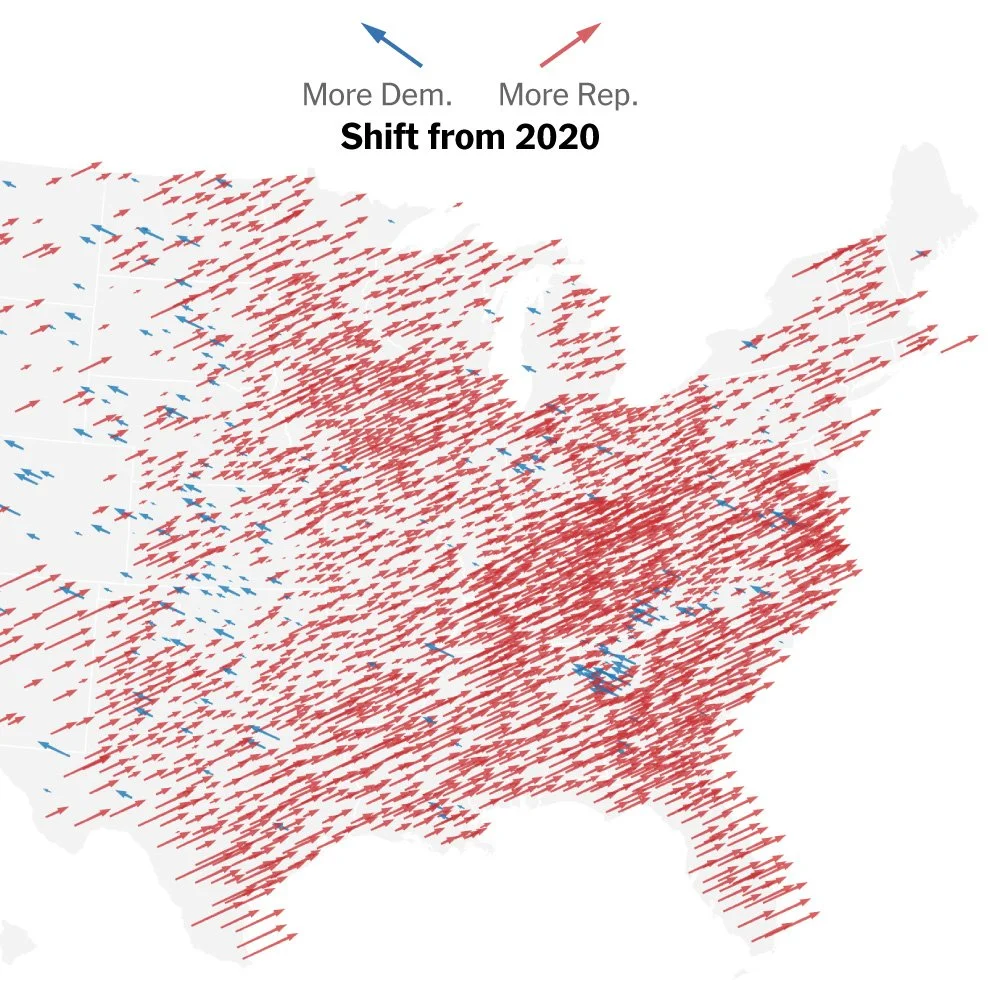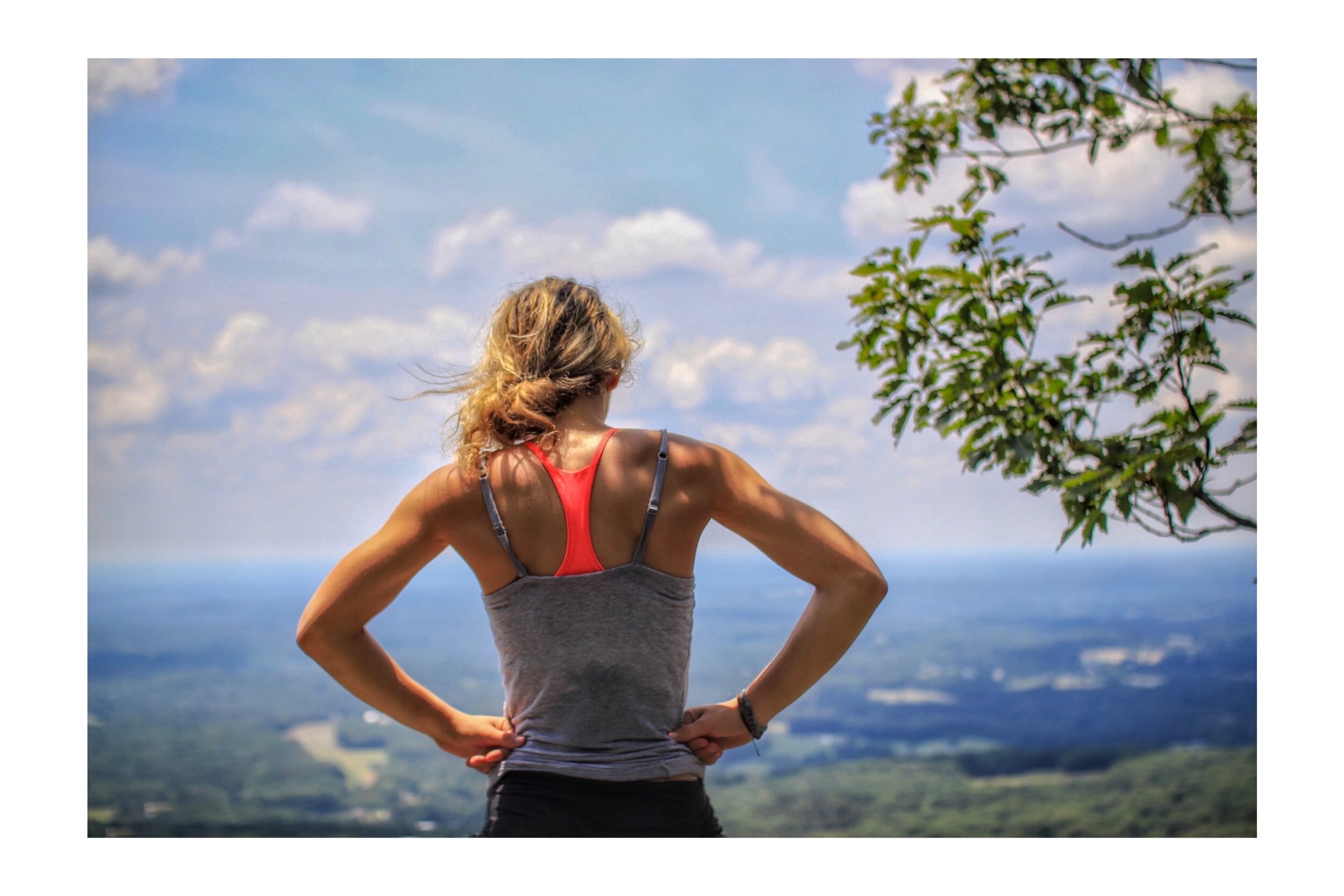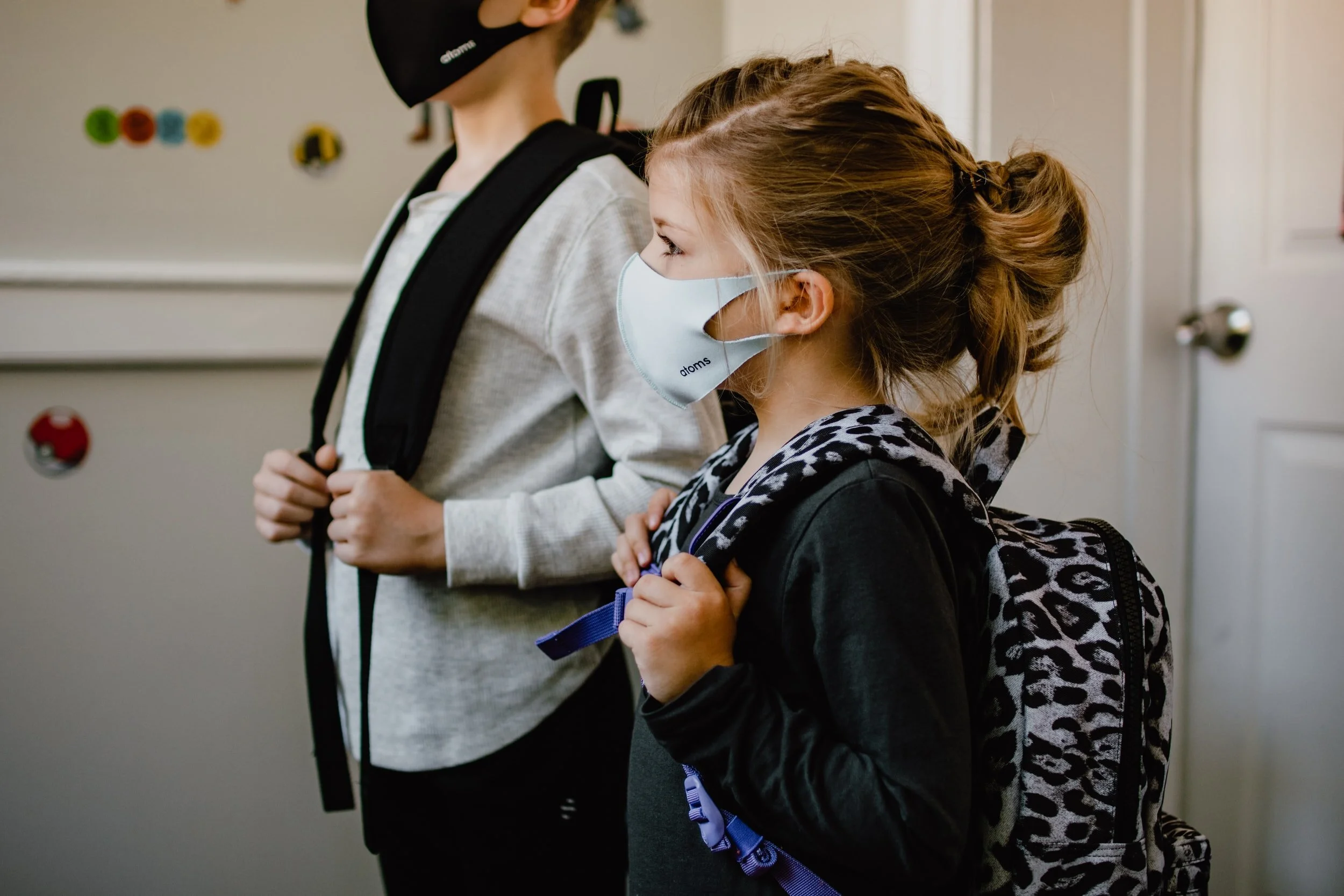In an ostensible effort to understand why so many counties across America are shifting red, The New York Times Magazine published a photo essay about Luzerne County in Pennsylvania. This is my response.
You Don’t Have to Walk Around Angry.
Private Schools Are Not The Problem
Running through the Pandemic: The Saving Grace of Sport
"Are We Ever Going to Get Grit Back?" Send Your Kids Back to School with This Message
The Power of Change
2020 was a lesson in what I can change and what I can’t.
As children, we all find ourselves in circumstances that are out of our control. That’s why it’s so important to have parents or adults in our lives who offer us stability, security, and a semblance of love. I learned quite early that I could not change my circumstances; I simply had to find a way to survive in this world. Everyone reacts to this reality differently. For me, I focused on what I could control—and what I could control was myself. Of course I went through the paces many others go through—rebellion, anger, depression. But none of those things fixed the problem—indeed, they seemed to make it worse. So somewhere in my teenage years, I recognized that I could change my attitude. Bitterness and disillusionment weren’t getting me anywhere. It was up to me to change my life. So I did.
Recognizing our ability to change is empowering. We get to decide. All we need to do is make up our mind, and commit to a goal.
It all began with a stark acceptance that no one else can care about me the way that I needed to care about myself. Yes, I would’ve liked to have responsible parents. But I didn’t. Sure, I would’ve liked to have more people notice my strengths, but they didn’t. And in truth, I had a ton of advantages—I was never hungry, always well-dressed, and certainly I was cared for—it was just…different from how I wished it were. I decided quite early on that my success would depend on me. It didn’t matter if other people recognized my strengths—I had to recognize them. It didn’t matter if other people believed in me—I had to believe in myself. And it sure as hell didn’t matter if I was lucky—I’d have to make my own luck.
This was my story, and I would write it. So that’s what I did. I decided what kind of student I wanted to be, and I became that student. I decided what kind of family life I envisioned for my own children, and I built it. I set achievable goals, and I ticked them off, one by one. So while things happened I couldn’t control—being orphaned at 21, for instance—I focused on what I wanted my life to look like, and I went after it. I became so good at making things happen that I believed I could make anything happen. I decided I wanted to be a runner, and within five years I ran a 3:19 marathon. I could do that.
So why couldn’t I make other people be who I wanted them to be? This is where I went wrong.
I somehow had a recognition in reverse—I thought because I could change myself, I could change the world. This is not really true.
I married a man who in many ways was exactly what I sought—stable, reliable, hard-working. All the things I didn’t have growing up. He never expressed any wish to change. But I saw early on issues with emotional availability, and I just figured I could fix him. Spoiler alert: that didn’t work. Then I met another man who said he wanted to change, and the person he said he wanted to be was exactly the person I was looking for! I knew he was not yet that person, but here was a man who was saying he wanted to be that person, and I knew that he could do it. I could teach him how to do it! Spoiler alert: that was even worse. As it turns out, there are a ton of people who say they want to change, but they just can’t do it.
This was honestly, and embarrassingly, news to me.
What is required to change is willpower and commitment. It requires resolve and dedication and perseverance, because change is really freaking hard. Leaving my marriage was exceptionally difficult, and I made plenty of serious mistakes in the process. Leaving behind the man who promised to be the one I was looking for was, in some ways, even harder. It felt like I failed—I couldn’t make things happen. And this was the story about myself that I valued beyond all others. It did not matter if I am the child of alcoholics, if my youth was filled with trauma, if I failed at creating the perfect childhood of an intact home for my own children—I was going to MAKE it turn out okay. And the thing is, this works really well when it’s just about me and my goals. But when you throw other people into the mix…well, this is what I failed to understand.
If I want to do something—if I decide it is who I want to be, it’s something that will result in a positive outcome, I just do it. I can literally make it happen. But not everyone is this way. I know now that it was wrong of me to go into a marriage thinking I could fix something I knew was missing. I also know that when that other man told me he wanted to be someone who was, in all honesty, vastly different from who he is, I should’ve run in the other direction. Now I can see that while change is empowering, it’s not a gift you can give or a commitment you can inspire. It’s got to come from within. It is a decision a person makes.
The really cool thing is that once we grasp this idea, we can make decisions for ourselves that don’t involve changing other people. We can walk away from toxic relationships. We can spend less time arguing on the internet. We can stop shaking our heads in disbelief that other people don’t see the world the way we see it. And we can stop trying to make them see it our way—because it won’t work. We can channel all that amazing energy in to being who we want to be, and we can surround ourselves with people who act in accordance with our beliefs. We can stop fighting a fight that isn’t ours, but we can also remain curious and empathetic. We can recognize that our world views are also not complete, that we still have much to learn. And we can focus on our own growth, and how that might contribute positively to the world around us.
Hindsight (Actually) Is 2020: Five Observations
Sometimes a person has to go a very long distance out of his way in order to come back a short distance correctly.
—Edward Albee, Zoo Story
It’s been a year. I can remember being in Disneyworld with my kids and my ex-husband—we had successfully fulfilled our promise to our kids that we would take them back to that happy place, and perhaps more importantly illustrated to them (and to ourselves) that we could still be a family, even if it wasn’t the one we’d imagined we’d be. Disney was as open as ever, though we had heard by then of the mysterious Coronavirus. We didn’t have any idea how serious it would be or how fast things would change. There was not one mention of it during our week in Disney, not even one hand sanitization stand, although the place itself would be abruptly shut down the very next week. Just last night my eldest child, Cate, now 16, said, “It’s hard to believe it was a year ago. You know, that was the first time I ever saw anyone wear a mask.” We all solemnly nodded, remembering—it was at the airport, as we were about to come home. We didn’t have masks. We certainly didn’t think we’d be wearing them. None of us became sick despite the fact that we were traveling around and standing in long lines right next to complete strangers from around the world. We also weren’t particularly worried about it. We had no idea how lucky we were.
When we got home, the kids didn’t go back to school. What we imagined was a temporary situation became permanent. We all had our own masks sewn for us by a loving and industrious friend, and we all donned them for a picture that we figured would be one for the books. That was before we all became mask aficionados, knowing precisely which ones we’d like best. It was before it would seem weirder not to see someone masked in public places. We never thought we’d still be wearing them all this time later. But we know better now—we expect to be wearing them for some time to come. Of course it hardly seems to matter now—just a small thing in a year that’s been full of big lessons. Because, for me, anyway, 2020 had very little to do with Covid-19, but it had everything to do with the things I learned from it. For me, the year really started in March, and I’d like to end it here. This is my return to writing, and in some ways, my return to myself. I’m embarrassed to think of how long I’ve been gone and how far away I had to go. But sometimes life is that way. I hope I’m a better person for it, and this particular blog will simply be a reflection of the lessons I learned in 2020.
Observation One: A Loving Reminder—We’re Not Getting Out Alive
One of the focuses of the pandemic seems to have been the reality of death—who is most vulnerable, who isn’t, what precautions should be taken, what risks are okay—and how we might cheat it. Perhaps my outlook is shaped by my childhood trauma, but all of this struck me as so odd. We are all going to die—it’s a simple fact that many people appear to not have really considered in terms of themselves or the people they love. The amazing part of the human condition is how we manage to carefully avoid facing the fact of death, so that when we have to face it, we act like it’s the most unexpected, supreme injustice. We surround ourselves with coffee mugs and motivational posters that remind us to be grateful and live for today, but we wink at the notion that today is really all we might have. Again and again I witnessed people grappling with the very real possibility of death and all the anger, resentment, and fear that stems from it.
Observation Two: We Get to Choose What Rules Us
Positive psychology tells us that although there is much in life that we can’t control, we can control where we place our attention. We can curse the darkness or embrace the light. The interesting part is that we can (and probably should) do both. People seemed to be putting a lot of pressure on themselves to embrace the light when they didn’t feel like it, a farce that became tougher to keep going the longer lockdowns stretched on. I saw how some people got stuck in the “be positive” mode, even as they seemed to spiral downward into a “just be” state of mind. Others became transfixed by the concept of grieving—that we are all grieving, that these are unprecedented hard times, that we should not expect much of ourselves right now. It’s certainly true that we should allow ourselves to feel whatever feelings we have, but it’s also important to explore our other options. The lockdown doesn’t extend to our personal growth—there’s plenty of room for that, even in the smallest of spaces.
Observation Three: What We Tell Ourselves Matters
Everybody has a pandemic story—everybody. It’s this unique time that we are all going through together. And although your experience might be very different from the next person’s, we can accept that all of our experiences are valid. They all matter. And what we tell ourselves about our experience (and other people’s) matters, too. We all experience the world differently; that’s why we can all look at the same sky and see something different. It’s part of what makes the human experience magical. It’s also why we disagree about how we see things like masks, vaccines, rallies, and restrictions. Instead of approaching these differences with curiosity and a quest for understanding one another better, we are often more interested in judging people who view things differently from us. We can remind ourselves to ask questions, to exercise our empathy, because our stories are simply one way of experiencing the world at this time.
Observation Four: It Takes Courage to Hope
2020 was a year full of fear. It was unfamiliar and unpredictable, which made it scary. Many people chose to let the fear rule them—and what happens when people choose fear is that they become smaller. They contract. Possibilities shrink. I was reminded of this time and time again as people clawed through the uncertainty to find anything they could actually count on again. Some people went back to old habits. Others went back to toxic relationships. Many who could simply went back home. Some people did all three at once! We—all of us—were literally stuck. But the thing that seemed to unstick me was hope. And I wasn’t alone—hope comes in lots of forms: science, leadership, spirituality, love. And hope helps us expand—it opens up the possibilities again. It allows us to consider that even if we don’t know what’s coming next, maybe it’s better than what is.
Observation Five: We Can Choose To Live Now
Some people spend their whole lives trying to prolong it instead of trying to live it. This is a losing proposition. Life is meant to be lived—now. But it’s also meant to be lived with purpose. So it’s not about throwing caution to the wind and living recklessly, but instead it’s about figuring out how to make it mean something outside of ourselves. How can we shape our stories to somehow improve the stories of others? Can we choose a path that positively impacts the world? Is there a way to reach outside ourselves to connect with something larger? People all over the world have had their world shrink, just like yours and mine, but this shrinking has also joined us together in an experience that none of us are likely to forget. Each day, regardless of where we are (or where we wish we were), we can ask ourselves this question: What choices can I make today that will make this life more worth living?
There was no perfect vision in 2020. But it’s behind us now.
In hindsight, I was expecting big things to happen in 2020. It seemed for a little while that maybe it was shaping up to be the year I was waiting for—but in reality it was the year where plans crumbled, disappointment reigned supreme, and I was forced, finally, to see things as they were, not as I wanted them to be. As it turns out, that reckoning with the truth actually was a big thing that happened. I took off my rose-colored glasses, for sure, but I could still have a glass of sparkling rosé. I was alone often, but I learned how not to be lonely. I felt despair many times, but I expanded my already-high capacity for joy and fulfillment. The most important thing that happened for me in 2020 was that I swapped out the notion of lockdown with lift-up. I am staying put not because I have to, but because it’s where I am choosing to be, day in and day out. I will make my own luck, and I will make this life as enjoyable as possible for everyone around me.








